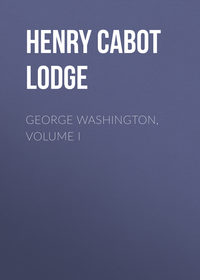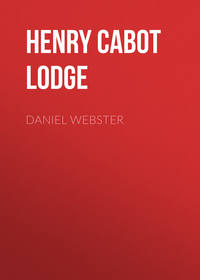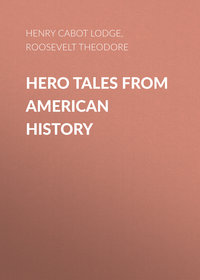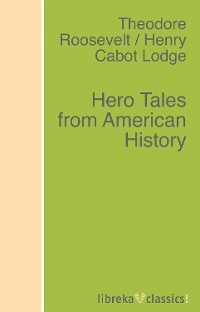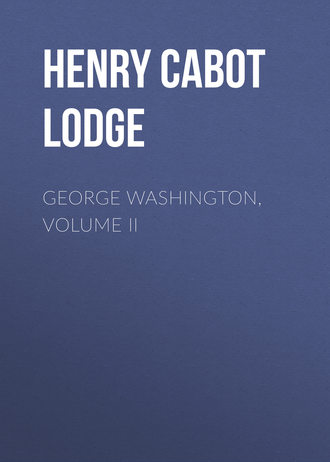 полная версия
полная версияGeorge Washington, Volume II
In order to point his sentence and prove his first postulate, Mr. King is obliged not only to dispose of Washington, but to introduce Columbus, who never was imagined in the wildest fantasy to be an American, and to omit Franklin. The omission of itself is fatal to Mr. King's case. Franklin has certainly a "preëminent name." He has, too, "immortal fame," although of course of a widely different character from that of either Washington or Lincoln, but he was a great man in the broad sense of a world-wide reputation. Yet no one has ever ventured to call Benjamin Franklin an Englishman. He was a colonial American, of course, but he was as intensely an American as any man who has lived on this continent before or since. A man of the people, he was American by the character of his genius, by his versatility, the vivacity of his intellect, and his mental dexterity. In his abilities, his virtues, and his defects he was an American, and so plainly one as to be beyond the reach of doubt or question. There were others of that period, too, who were as genuine Americans as Franklin or Lincoln. Such were Jonathan Edwards, the peculiar product of New England Calvinism; Patrick Henry, who first broke down colonial lines to declare himself an American; Samuel Adams, the great forerunner of the race of American politicians; Thomas Jefferson, the idol of American democracy. These and many others Mr. King might exclude on the ground that they did not reach the lonely height of immortal fame. But Franklin is enough. Unless one is prepared to set Franklin down as an Englishman, which would be as reasonable as to say that Daniel Webster was a fine example of the Slavic race, it must be admitted that it was possible for the thirteen colonies to produce in the eighteenth century a genuine American who won immortal fame. If they could produce one of one type, they could produce a second of another type, and there was, therefore, nothing inherently impossible in existing conditions to prevent Washington from being an American.
Lincoln was undoubtedly the first great American of his type, but that is not the only type of American. It is one which, as bodied forth in Abraham Lincoln, commands the love and veneration of the people of the United States, and the admiration of the world wherever his name is known. To the noble and towering greatness of his mind and character it does not add one hair's breadth to say that he was the first American, or that he was of a common or uncommon type. Greatness like Lincoln's is far beyond such qualifications, and least of all is it necessary to his fame to push Washington from his birthright. To say that George Washington, an English commoner, vanquished George, an English king, is clever and picturesque, but like many other pleasing antitheses it is painfully inaccurate. Allegiance does not make race or nationality. The Hindoos are subjects of Victoria, but they are not Englishmen.
Franklin shows that it was possible to produce a most genuine American of unquestioned greatness in the eighteenth century, and with all possible deference to Mr. Lowell and Mr. King, I venture the assertion that George Washington was as genuine an American as Lincoln or Franklin. He was an American of the eighteenth and not of the nineteenth century, but he was none the less an American. I will go further. Washington was not only an American of a pure and noble type, but he was the first thorough American in the broad, national sense, as distinct from the colonial American of his time.
After all, what is it to be an American? Surely it does not consist in the number of generations merely which separate the individual from his forefathers who first settled here. Washington was fourth in descent from the first American of his name, while Lincoln was in the sixth generation. This difference certainly constitutes no real distinction. There are people to-day, not many luckily, whose families have been here for two hundred and fifty years, and who are as utterly un-American as it is possible to be, while there are others, whose fathers were immigrants, who are as intensely American as any one can desire or imagine. In a new country, peopled in two hundred and fifty years by immigrants from the Old World and their descendants, the process of Americanization is not limited by any hard and fast rules as to time and generations, but is altogether a matter of individual and race temperament. The production of the well-defined American types and of the fixed national characteristics which now exist has been going on during all that period, but in any special instance the type to which a given man belongs must be settled by special study and examination.
Washington belonged to the English-speaking race. So did Lincoln. Both sprang from the splendid stock which was formed during centuries from a mixture of the Celtic, Teutonic, Scandinavian, and Norman peoples, and which is known to the world as English. Both, so far as we can tell, had nothing but English blood, as it would be commonly called, in their veins, and both were of that part of the English race which emigrated to America, where it has been the principal factor in the development of the new people called Americans. They were men of English race, modified and changed in the fourth and sixth generations by the new country, the new conditions, and the new life, and by the contact and admixture of other races. Lincoln, a very great man, one who has reached "immortal fame," was clearly an American of a type that the Old World cannot show, or at least has not produced. The idea of many persons in regard to Washington seems to be, that he was a great man of a type which the Old World, or, to be more exact, which England, had produced. One hears it often said that Washington was simply an American Hampden. Such a comparison is an easy method of description, nothing more. Hampden is memorable among men, not for his abilities, which there is no reason to suppose were very extraordinary, but for his devoted and unselfish patriotism, his courage, his honor, and his pure and lofty spirit. He embodied what his countrymen believe to be the moral qualities of their race in their finest flower, and no nation, be it said, could have a nobler ideal. Washington was conspicuous for the same qualities, exhibited in like fashion. Is there a single one of the essential attributes of Hampden that Lincoln also did not possess? Was he not an unselfish and devoted patriot, pure in heart, gentle of spirit, high of honor, brave, merciful, and temperate? Did he not lay down his life for his country in the box at Ford's Theatre as ungrudgingly as Hampden offered his in the smoke of battle upon Chalgrove field? Surely we must answer Yes. In other words, these three men all had the great moral attributes which are the characteristics of the English race in its highest and purest development on either side of the Atlantic. Yet no one has ever called Lincoln an American Hampden simply because Hampden and Washington were men of ancient family, members of an aristocracy by birth, and Lincoln was not. This is the distinction between them; and how vain it is, in the light of their lives and deeds, which make all pedigrees and social ranks look so poor and worthless! The differences among them are trivial, the resemblances deep and lasting.
I have followed out this comparison because it illustrates perfectly the entirely superficial character of the reasons which have led men to speak of Washington as an English country gentleman. It has been said that he was English in his habits, moral standards, and social theories, which has an important sound, but which for the most part comes down to a question of dress and manners. He wore black velvet and powdered hair, knee-breeches and diamond buckles, which are certainly not American fashions to-day. But they were American fashions in the last century, and every man wore them who could afford to, no matter what his origin. Let it be remembered, however, that Washington also wore the hunting-shirt and fringed leggins of the backwoodsman, and that it was he who introduced this purely American dress into the army as a uniform.
His manners likewise were those of the century in which he lived, formal and stately, and of course colored by his own temperament. His moral standards were those of a high-minded, honorable man. Are we ready to say that they were not American? Did they differ in any vital point from those of Lincoln? His social theories were simple in the extreme. He neither overvalued nor underrated social conventions, for he knew that they were a part of the fabric of civilized society, not vitally important and yet not wholly trivial. He was a member of an aristocracy, it is true, both by birth and situation. There was a recognized social aristocracy in every colony before the Revolution, for the drum-beat of the great democratic march had not then sounded. In the northern colonies it was never strong, and in New England it was especially weak, for the governments and people there were essentially democratic, although they hardly recognized it themselves. In Virginia and the southern colonies, on the other hand, there was a vigorous aristocracy resting on the permanent foundation of slavery. Where slaves are there must be masters, and where there are masters there are aristocrats; but it was an American and not an English aristocracy. Lineage and family had weight in the south as in the north, but that which put a man undeniably in the ruling class was the ownership of black slaves and the possession of a white skin. This aristocracy lasted with its faults and its virtues until it perished in the shock of civil war, when its foundation of human slavery was torn from under it. From the slave-holding aristocracy of Virginia came, with the exception of Patrick Henry, all the great men of that State who did so much for American freedom, and who rendered such imperishable service to the republic in law, in politics, and in war. From this aristocracy came Marshall, and Mason, and Madison, the Lees, the Randolphs, the Harrisons, and the rest. From it came also Thomas Jefferson, the hero of American democracy; and to it was added Patrick Henry, not by lineage or slave-holding, but by virtue of his brilliant abilities, and because he, too, was an aristocrat by the immutable division of race. It was this aristocracy into which Washington was born, and amid which he was brought up. To say that it colored his feelings and habits is simply to say that he was human; but to urge that it made him un-American is to exclude at once from the ranks of Americans all the great men given to the country by the South. Washington, in fact, was less affected by his surroundings, and rose above them more quickly, than any other man of his day, because he was the greatest man of his time, with a splendid breadth of vision.
When he first went among the New England troops at the siege of Boston, the rough, democratic ways of the people jarred upon him, and offended especially his military instincts, for he was not only a Virginian but he was a great soldier, and military discipline is essentially aristocratic. These volunteer soldiers, called together from the plough and the fishing-smack, were free and independent men, unaccustomed to any rule but their own, and they had still to learn the first rudiments of military service. To Washington, soldiers who elected and deposed their officers, and who went home when they felt that they had a right to do so, seemed well-nigh useless and quite incomprehensible. They angered him and tried his patience almost beyond endurance, and he spoke of them at the outset in harsh terms by no means wholly unwarranted. But they were part of his problem, and he studied them. He was a soldier, but not an aristocrat wrapped up in immutable prejudices, and he learned to know these men, and they came to love, obey, and follow him with an intelligent devotion far better than anything born of mere discipline. Before the year was out, he wrote to Lund Washington praising the New England troops in the highest terms, and at the close of the war he said that practically the whole army then was composed of New England soldiers. They stayed by him to the end, and as they were steadfast in war so they remained in peace. He trusted and confided in New England, and her sturdy democracy gave him a loyal and unflinching support to the day of his death.
This openness of mind and superiority to prejudice were American in the truest and best sense; but Washington showed the same qualities in private life and toward individuals which he displayed in regard to communities. He was free, of course, from the cheap claptrap which abuses the name of democracy by saying that birth, breeding, and education are undemocratic, and therefore to be reckoned against a man. He valued these qualities rightly, but he looked to see what a man was and not who he was, which is true democracy. The two men who were perhaps nearest to his affections were Knox and Hamilton. One was a Boston bookseller, who rose to distinction by bravery and good service, and the other was a young adventurer from the West Indies, without either family or money at his back. It was the same with much humbler persons. He never failed, on his way to Philadelphia, to stop at Wilmington and have a chat with one Captain O'Flinn, who kept a tavern and had been a Revolutionary soldier; and this was but a single instance among many of like character. Any soldier of the Revolution was always sure of a welcome at the hands of his old commander. Eminent statesmen, especially of the opposition, often found his manner cold, but no old soldier ever complained of it, no servant ever left him, and the country people about Mount Vernon loved him as a neighbor and friend, and not as the distant great man of the army and the presidency.
He believed thoroughly in popular government. One does not find in his letters the bitter references to democracy and to the populace which can be discovered in the writings of so many of his party friends, legacies of pre-revolutionary ideas inflamed by hatred of Parisian mobs. He always spoke of the people at large with a simple respect, because he knew that the future of the United States was in their hands and not in that of any class, and because he believed that they would fulfill their mission. The French Revolution never carried him away, and when it bred anarchy and bloodshed he became hostile to French influence, because license and disorder were above all things hateful to him. Yet he did not lose his balance in the other direction, as was the case with so many of his friends. He resisted and opposed French ideas and French democracy, so admired and so loudly preached by Jefferson and his followers, because he esteemed them perilous to the country. But there is not a word to indicate that he did not think that such dangers would be finally overcome, even if at the cost of much suffering, by the sane sense and ingrained conservatism of the American people. Other men talked more noisily about the people, but no one trusted them in the best sense more than Washington, and his only fear was that evils might come from their being misled by false lights.
Once more, what is it to be an American? Putting aside all the outer shows of dress and manners, social customs and physical peculiarities, is it not to believe in America and in the American people? Is it not to have an abiding and moving faith in the future and in the destiny of America?—something above and beyond the patriotism and love which every man whose soul is not dead within him feels for the land of his birth? Is it not to be national and not sectional, independent and not colonial? Is it not to have a high conception of what this great new country should be, and to follow out that ideal with loyalty and truth?
Has any man in our history fulfilled these conditions more perfectly and completely than George Washington? Has any man ever lived who served the American people more faithfully, or with a higher and truer conception of the destiny and possibilities of the country? Born of an old and distinguished family, he found himself, when a boy just out of school, dependent on his mother, and with an inheritance that promised him more acres than shillings. He did not seek to live along upon what he could get from the estate, and still less did he feel that it was only possible for him to enter one of the learned professions. Had he been an Englishman in fact or in feeling, he would have felt very naturally the force of the limitations imposed by his social position. But being an American, his one idea was to earn his living honestly, because it was the creed of his country that earning an honest living is the most creditable thing a man can do. Boy as he was, he went out manfully into the world to win with his own hands the money which would make him self-supporting and independent. His business as a surveyor took him into the wilderness, and there he learned that the first great work before the American people was to be the conquest of the continent. He dropped the surveyor's rod and chain to negotiate with the savages, and then took up the sword to fight them and the French, so that the New World might be secured to the English-speaking race. A more purely American training cannot be imagined. It was not the education of universities or of courts, but that of hard-earned personal independence, won in the backwoods and by frontier fighting. Thus trained, he gave the prime of his manhood to leading the Revolution which made his country free, and his riper years to building up that independent nationality without which freedom would have been utterly vain.
He was the first to rise above all colonial or state lines, and grasp firmly the conception of a nation to be formed from the thirteen jarring colonies. The necessity of national action in the army was of course at once apparent to him, although not to others; but he carried the same broad views into widely different fields, where at the time they wholly escaped notice. It was Washington, oppressed by a thousand cares, who in the early days of the Revolution saw the need of Federal courts for admiralty cases and for other purposes. It was he who suggested this scheme, years before any one even dreamed of the Constitution; and from the special committees of Congress, formed for this object in accordance with this advice, came, in the process of time, the Federal judiciary of the United States.18 Even in that early dawn of the Revolution, Washington had clear in his own mind the need of a continental system for war, diplomacy, finance, and law, and he worked steadily to bring this policy to fulfilment.
When the war was over, the thought that engaged his mind most was of the best means to give room for expansion, and to open up the unconquered continent to the forerunners of a mighty army of settlers. For this purpose all his projects for roads, canals, and surveys were formed and forced into public notice. He looked beyond the limits of the Atlantic colonies. His vision went far over the barriers of the Alleghanies; and where others saw thirteen infant States backed by the wilderness, he beheld the germs of a great empire. While striving thus to lay the West open to the march of the settler, he threw himself into the great struggle, where Hamilton and Madison, and all who "thought continentally," were laboring for that union without which all else was worse than futile.
From the presidency of the convention that formed the Constitution, he went to the presidency of the government which that convention brought into being; and in all that followed, the one guiding thought was to clear the way for the advance of the people, and to make that people and their government independent in thought, in policy, and in character, as the Revolution had made them independent politically. The same spirit which led him to write during the war that our battles must be fought and our victories won by Americans, if victory and independence were to be won at all, or to have any real and solid worth, pervaded his whole administration. We see it in his Indian policy, which was directed not only to pacifying the tribes, but to putting it out of their power to arrest or even delay western settlement. We see it in his attitude toward foreign ministers, and in his watchful persistence in regard to the Mississippi, which ended in our securing the navigation of the great river. We see it again in his anxious desire to keep peace until we had passed the point where war might bring a dissolution; and how real that danger was, and how clear and just his perception of it, is shown by the Kentucky and Virginia Resolutions and by the separatist movement in New England during the later war of 1812. Even in 1812 the national existence was menaced, but the danger would have proved fatal if it had come twenty years earlier, with parties divided by their sympathies with contending foreign nations. It was for the sake of the Union that Washington was so patient with France, and faced so quietly the storm of indignation aroused by the Jay treaty.
In his whole foreign policy, which was so peculiarly his own, the American spirit was his pole star; and of all the attacks made upon him, the only one which really tried his soul was the accusation that he was influenced by foreign predilections. The blind injustice, which would not comprehend that his one purpose was to be American and to make the people and the government American, touched him more deeply than anything else. As party strife grew keener over the issues raised by the war between France and England, and as French politics and French ideas became more popular, his feelings found more frequent utterance, and it is interesting to see how this man, who, we are now told, was an English country gentleman, wrote and felt on this matter in very trying times. Let us remember, as we listen to him now in his own defense, that he was an extremely honest man, silent for the most part in doing his work, but when he spoke meaning every word he said, and saying exactly what he meant. This was the way in which he wrote to Patrick Henry in October, 1795, when he offered him the secretaryship of State:—
"My ardent desire is, and my aim has been as far as depended upon the executive department, to comply strictly with all our engagements, foreign and domestic; but to keep the United States free from political connection with every other country, to see them independent of all and under the influence of none. In a word, I want an American character, that the powers of Europe may be convinced that we act for ourselves, and not for others. This, in my judgment, is the only way to be respected abroad and happy at home; and not, by becoming partisans of Great Britain or France, create dissensions, disturb the public tranquillity, and destroy, perhaps forever, the cement which binds the Union."
Not quite a year later, when the Jay treaty was still agitating the public mind in regard to our relations with France, he wrote to Pickering:—
"The Executive has a plain road to pursue, namely, to fulfill all the engagements which duty requires; be influenced beyond this by none of the contending parties; maintain a strict neutrality unless obliged by imperious circumstances to depart from it; do justice to all, and never forget that we are Americans, the remembrance of which will convince us that we ought not to be French or English."
After leaving the presidency, when our difficulties with France seemed to be thickening, and the sky looked very dark, he wrote to a friend saying that he firmly believed that all would come out well, and then added: "To me this is so demonstrable, that not a particle of doubt could dwell on my mind relative thereto, if our citizens would advocate their own cause, instead of that of any other nation under the sun; that is, if, instead of being Frenchmen or Englishmen in politics they would be Americans, indignant at every attempt of either or any other powers to establish an influence in our councils or presume to sow the seeds of discord or disunion among us."
A few days later he wrote to Thomas Pinckney:
"It remains to be seen whether our country will stand upon independent ground, or be directed in its political concerns by any other nation. A little time will show who are its true friends, or, what is synonymous, who are true Americans."
But this eager desire for a true Americanism did not stop at our foreign policy, or our domestic politics. He wished it to enter into every part of the life and thought of the people, and when it was proposed to bring over the entire staff of a Genevan university to take charge of a national university here, he threw his influence against it, expressing grave doubts as to the advantage of importing an entire "seminary of foreigners," for the purpose of American education. The letter on this subject, which was addressed to John Adams, then continued:—


